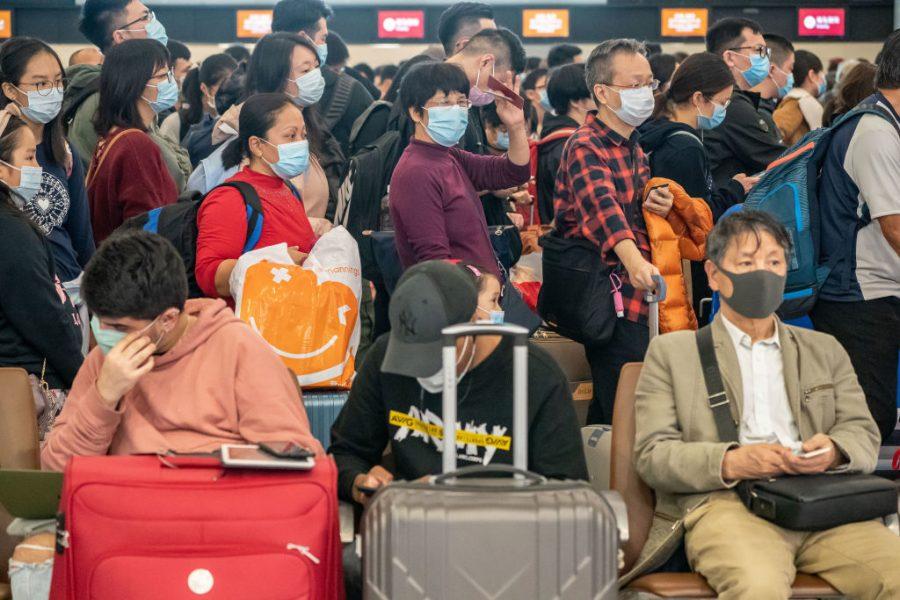
The beat
Organised crime set to thrive in Latin America in 2020
InSight Crime has predicted that political instability, diminishing regional and international cooperation, and the increasingly transnational and interconnected nature of criminal syndicates will allow organised crime to prosper in South America over the coming year. Criminal activity will also drive climate change through pollution, deforestation and the destruction of animal species.
Where the US Democratic Party nominees stand on criminal justice
Democrats have criticised President Donald Trump’s approach to criminal justice reform, despite generally bipartisan support for the administration’s First Step Act. The Marshall Project has outlined where each of the Democratic presidential nominees stands on matters of criminal justice. Several candidates support the implementation of federal standards on the police use of force. Candidates are divided on decriminalising illegal border crossings and ending solitary confinement.
Bitcoin and blockchain—catalysing or fighting transnational crime and corruption?
Debate continues on the efficacy of bitcoin and blockchain as means of reducing transnational crime and corruption. The ease with which bitcoin can be widely dispersed and transferred instantaneously appears to undermine the use of data to track and uncover illegal activity. Yet, the anti-corruption potential of blockchain is slowly emerging. Uses include limiting voter fraud in elections, distributing humanitarian aid, and storing land titles to protect against fraud and corruption.
CT scan
Libyan instability threatens the wider region
Top diplomats from across North Africa met in Algiers on 23 January seeking solutions to the continued unrest in Libya. UN Secretary-General Antonio Guterres warned that the situation in Libya would affect the Sahel and Lake Chad areas and called for stronger African-led counterterrorism efforts. A record 3,471 examples of extremist violence were reported in Africa in 2019, double the number reported in 2013, with the continued unrest in Libya only set to increase that number.
Japan–Indonesia cooperation on counter-terrorism efforts
Japan and Indonesia have announced closer collaboration on counterterrorism and deradicalisation efforts. Indonesia’s security minister, Mahfud M.D., has suggested establishing a forum for the two countries to regularly meet and discuss regional security. Mahfud said that both countries were interested in more collaborative approaches to extremist threats, noting that that ‘deradicalization efforts will take different forms’.
Kenya cracks down on contraband in fight against terrorism funding
Kenya’s Interior Cabinet Secretary Fred Matiang’i has announced a government crackdown on illicit imports being used to fund terrorism. Matiang’i also warned that chiefs will be held responsible for failing to identify extremists within their areas. The decisions come less than a fortnight after Kenyan President Uhuru Kenyatta called for an economic embargo on illegal deals funding the al-Shabaab terrorist group.
Checkpoint
China and Indonesia face off in the South China Sea
Indonesia and China have been facing off over resource exploration rights and the sovereignty of the waters north of the Natuna Islands in the South China Sea. Jakarta has rebuked Beijing over the presence of a Chinese coast guard vessel in Indonesia’s exclusive economic zone earlier this month. Southeast Asian nations say they frequently face tough decisions about how to push back and counter Chinese tactics without going too far and tend to take a cautious approach to maritime disputes with China.
Hungarian border guards fire warning shots to stop refugees crossing from Serbia
A Hungarian security officer fired three warning shots after around 60 refugees attempted to force their way through a checkpoint on the country’s southern Roszke–Horgos border crossing with Serbia. Thirty-seven people were later arrested by Serbian authorities for trying to cross the border illegally. The crossing was the site of large-scale clashes during the European migration crisis in 2015 that led to the construction of a steel fence along the border. However, hundreds of attempts to cross the border without authority still occur each week.
PNG to strengthen border security laws
Minister for Immigration and Border Security Westley Nukundj says PNG will strengthen its border security laws to protect its people from foreign illegal activities and businesses. This follows the implementation of the ‘Take Back PNG’ reform, which aims to lessen the influence of various forces that have undermined national development over many years.
First responder
Africa suffers in silence
The humanitarian aid agency CARE has published a new report highlighting the top 10 crises that received little media attention in 2019. Madagascar’s chronic food shortage was the least-reported crisis, and 9 out of the 10 under-reported crises were in Africa. Nairobian writer Patrick Gathara believes that foreign correspondents are unable to help audiences understand the root cause of the problem when local reporters can do the job ‘more effectively and comprehensively’.
Containing coronavirus may not be possible
Infectious disease experts warn that containing the new coronavirus may not be feasible and that ‘we need to plan for the possibility that containment of this epidemic isn’t possible’. The World Health Organization has confirmed that the number of cases has exceeded 6,000 with at least five cases in Australia. The WHO will soon decide whether the outbreak constitutes a ‘public health emergency of international concern’.
Exposure to bushfire smoke may lead to future public health problems
A study at the University of California’s Primate Center has found that exposure to bushfire smoke inhibited lung growth in infant monkeys by 20%. Researcher Lisa Miller said that the lessons from the study should inform regulatory agencies because they can ‘anticipate the types of health outcomes that might be expected in the human population’. This follows the Australian Medical Association’s warning that long-term exposure to toxic smoke could adversely affect the health of many Australians.